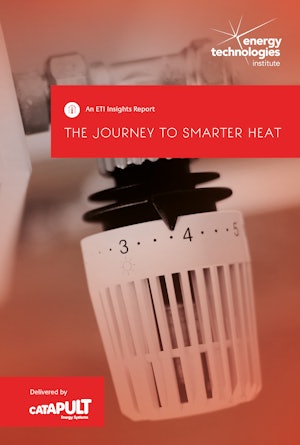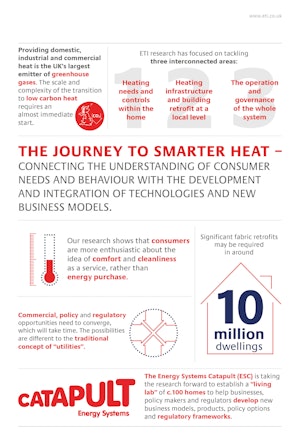The Journey to Smarter Heat

Andrew Haslett
Chief Engineer

As the UK’s largest emitter of greenhouse gases, the supply of domestic, industrial and commercial heat must be decarbonised if the UK is to meet its climate change targets.
This report publishes the outcomes from Phase 1 of the Energy Technologies Institute’s Smart Systems and Heat programme, highlighting that for the UK to transition to a low carbon heating system it must understand consumer needs and behaviours, while connecting this with the development and integration of technologies and new business models.
Written by the ETI, with support from the Energy Systems Catapult, this report tackles three interconnected areas: heating needs and controls within the home; heating infrastructure and building retrofit at a local level; and the operation and governance of the whole system.
The research also shows that, as part of a low carbon heating system upgrade, advanced controls are critical to performance, sizing and operating costs, enabling smaller appliances and lower peak electricity demands and maximising the efficiency of existing infrastructure. With significant fabric retrofits potentially required in around 10 million of the existing 28 million dwellings in the UK housing stock, the report recommends that building new homes to be both very efficient and “low carbon ready” is a low regret decision, which should be progressed with some urgency.

Andrew Haslett
Chief Engineer
Andrew Haslett joined ETI as Strategy Director in April 2008 and was appointed Chief Engineer in January 2014. He is a Fellow of the Royal Academy of Engineering, the Institution of Chemical Engineers and the Royal Society for the encouragement of Arts, Manufactures and Commerce.